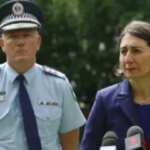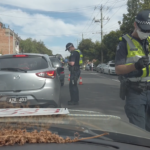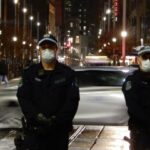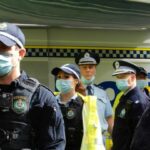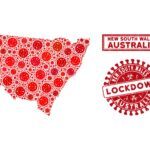NSW Government Cashes in on COVID-19 Fines
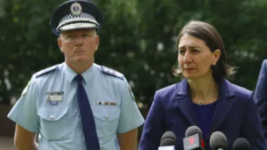
New South Wales police officers have issued a whopping 22,000 fines, or nearly 1000 fines every day, since the launch of Operation Stay at Home in mid-August 2021, when the entire state was put into lockdown.
Figures released this week show that since the start of the pandemic last year, the people of New South Wales have paid $3.5 million in COVID-19 fines, while there are nearly $25 million worth of fines yet to be paid.
A further $3.4 million in fines are now overdue, adversely impacting on the mental of many who are already in financial dire straits.
Harsher rules, heavier enforcement and increased fines
The Operation, which commenced on 16 August, saw the government and police ramp up controls, increase fines and intensify enforcement measures – especially in Sydney’s west and south-west.
On-the-spot fines for failing to comply with a public health order saw a five-fold increase from $1000 to a maximum of $5000, and fines for not wearing a mask increased from $200 to $500.
Harsher rules included a curfew and exercise limits in Sydney’s Local Government Areas (LGAs) of concern, an outdoor mask mandate and stricter rules relating to movement.
Many businesses were ordered to close entirely and stay-at-home orders meant that many others could not viably operate.
The state government also gave police additional powers to lock down apartment buildings, without waiting for NSW Health.
An additional 500 Australian Defence Force personnel were added to the government’s enforcement arsenal, turning more of the men and women who are meant to protect us from foreign enemies against their own people.
In press conference to announce the measures, Premier Gladys Berejiklian admitted that she was happy to give police chief Mick Fuller any resources he needed to ensure compliance with public health rules across the state, and went so far as to take the unprecedented measure of handing over the task of drafting public health orders to the police force – creating a situation where police both drafted and enforced the rules.
Since then, police have issued more than double the number of fines in a three-and-a-half week period than they have for the entire duration of the pandemic.
On top of this, Police Commissioner Mick Fuller recently urged his officers to take a heavy-handed approach to enforcement, assuring them there would be no repercussions if they ‘get it wrong’.
To many, the situation is akin to a police state.
Can’t arrest our way out
But many have questioned whether heavy-handed COVID policing is the right way to go – asserting that ‘we can’t arrest our way out of a pandemic’.
Concerns have also been raised about the heavy-handed approach being adopted by members of the police force, which has seen many law abiding and well-intentioned members of the community fined or even arrested for engaging in conduct they did not know was against the law.
And with the ever-changing and ever-expanding nature of the orders (the main order now being 50 pages in length), and the ambiguity and uncertainty in many of them, it is hard to see how anyone can reasonably be expected to fully comprehend them all.
Heavy-handed and inconsistent policing
This time last year, the criticism levelled at police for the haphazard way in which officers were handing out fines led the Police Chief to review a significant number of them personally, but he’s adamant that’s not going to happen again.
Instead, anyone who believes they have been wrongly issued a fine needs to seek a review of the fine from Revenue New South Wales. If the review does not provide an outcome that is desirable, then these people need to seek legal advice, at their own expense.
This then will mean that a great majority of fines are likely to be contested in the courts which are already overloaded, and facing significant backlogs given that some matters have been put on “pause” during the pandemic.
If fines are unpaid by the due date, unless a payment plan has been entered into with Revenue NSW, then the original fines will attract late fees and further penalties. Revenue NSW also has the authority to suspend driver licences, cancel vehicle registration and garnish money from wages or bank accounts.
Police Commissioner claims credit
In justifying the significant increase in Covid-fines, Police Commissioner Fuller told media recently, “Since that operation commenced there has been no expansion in the number of metropolitan LGAs of concern.”
However, several prominent health experts suggest that steadily increasing vaccination rates over the past several weeks have contributed to the slowdown in transmission.
While some also contend that restricting movement does help to slow transmission of Delta, most agree that policing needs to be proportionate to the public health risks presented by the risk of the activities which are undertaken.


